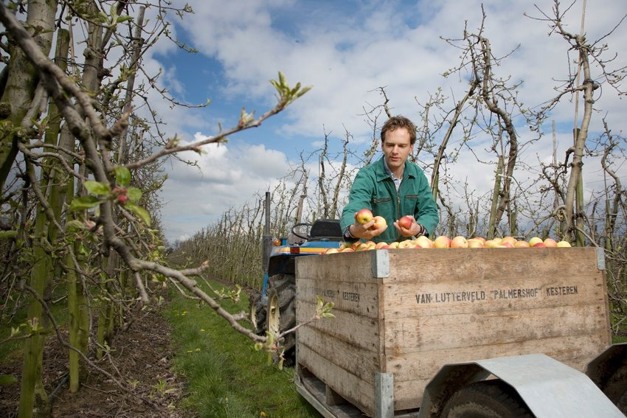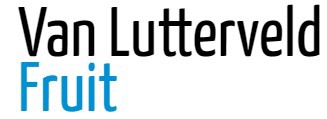With 2025 approaching, the top fruit market is beginning to take clearer shape. Supply is strong, and demand is increasing with the darker weather, but many uncertainties remain, says Dirk Jan van Lutterveld of Van Lutterveld Fruit. "We have to be careful that, in the future, fruit doesn't become something only for the elite," he warns.

At the farm in Kesteren, Gelderland, all the apples and pears were brought in on time this year. "The harvest went very well," Dirk Jan says. "The quality of the pears is good. Of course, there's some fruit with minor hail damage, but overall, it's not too bad. The internal quality hasn't been affected; it's mainly cosmetic flaws. In recent years, the market has become more accepting of this. People understand the climatic challenges growers face, so there's empathy when there are imperfections."
"That said, pear yields are significantly lower than in other years," he continues. "This has been known for a while, but I think we ended up with about 25% fewer kilos. This trend is Europe-wide, so we're not alone in this. Demand is strong, and it may even increase further in the coming weeks. I feel there hasn't been large-scale sorting yet, so it's unclear how the market will respond come January. If everyone enters the market at the same time, we might need to tread cautiously. Still, I hope demand continues to grow into the new year."
Despite the challenges, Dirk Jan remains optimistic. "I don't have complete visibility yet, but we've sorted well and won't struggle to sell our pears. Additionally, the price level is solid. The key question is how well the pears will store. Some hail-damaged fruit can't be stored for long, but this might not be an issue if overall supply is limited. It's still a bit of a guessing game."

Urgent need to talk about the future
In terms of apples, Dirk Jan is pleased with the current situation but expresses concern about the future. "At the moment, demand is strong. However, fewer apples are being grown in the Netherlands each year. While some new orchards are planted, more are being removed. This isn't just a trend in apples but in many other crops as well. Increasing restrictions make it increasingly difficult for growers, creating widespread uncertainty. It's time for common sense to prevail," he says emphatically.
"We're reaching a point where only the elite can afford fruit. Everyone promotes the consumption of healthy fruits and vegetables, but if growers experience up to 25% lower yields, for example, this will result in prices being 50% higher. That's just how the market works, and it's a future we're slowly moving toward. When prices rise too much, fruit becomes unaffordable for many people, which I believe is a significant mistake. This issue isn't limited to apples but extends to pears, cherries, and even crops like Brussel sprouts. To move forward, collaboration with regulatory bodies is essential. We, as growers, want to contribute to finding better solutions, but in the meantime, we need the tools to combat pests and diseases effectively. Otherwise, the sector will deteriorate, forcing growers to rely more on exports. This isn't yet a major issue, but it's closer than many think."

This could have severe consequences, he argues. "Growers are losing hope. More are quitting than starting. That's why it's important to sound the alarm now. Currently, we're still self-sufficient, but as local production decreases, we'll have to rely more on imported fruit. Imports aren't cheap due to transport costs, and in terms of sustainability, they result in higher emissions. Moreover, the global market is unstable. If we become dependent on imports, any disruption could lead to certain products becoming unavailable or even more expensive. This scenario feels unimaginable in the Netherlands, a major food producer, but that's part of the problem—everyone assumes things will always work out. Unfortunately, they don't always. We urgently need to have open discussions to create space for future-proof cultivation."
For more information:
Dirk-Jan van Lutterveld
Van Lutterveld Fruit
[email protected]
www.lutterveldfruit.nl
